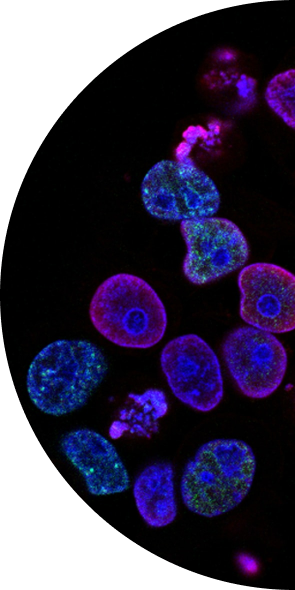Our science
& research
Our science
& research
Science & Research
Scientific overview
Rhythm’s unique focus is on rare melanocortin-4 receptor (MC4R) pathway diseases. These are characterised by hyperphagia (insatiable hunger) and severe obesity.
Many factors influence the balance of energy intake (food consumption) and energy expenditure (metabolic rate, thermogenesis, and physical activity).
While many environmental factors can influence this balance, our genes also play a significant role.
Research has shown that some naturally arising genetic variants are associated with hyperphagia (insatiable hunger) and severe obesity. However, it’s important to note that the impact of these variants on body weight can vary considerably.1-3
The MC4R pathway can be impaired by such genetic variants and is at the centre of our efforts to transform the care of those living with rare MC4R pathway diseases.4,5

The MC4R pathway

The MC4R pathway is a critical regulator of hunger and energy balance. It affects body weight by controlling food intake and energy expenditure.1

The pathway involves the hormone leptin which is produced by adipose (fat) tissue. In the hypothalamus, a key part of the brain that helps regulate hunger, leptin activates the MC4R pathway causing a cascade of chemical changes that reduce appetite and increase energy expenditure.1,3

When signalling in the MC4R pathway becomes impaired, energy balance can become disrupted and lead to hyperphagia (insatiable hunger) and severe obesity.1,3
Rare MC4R pathway diseases
Rare MC4R pathway diseases generally arise because of the following:5-7
Rare, highly impactful variants in just one gene that result in loss of function in the MC4R pathway
Rare, highly impactful variants in different families of genes that lead to diseases such as Alström syndrome, and Bardet-Biedl syndrome
An acquired injury to the hypothalamic region resulting in impairment to the MC4R pathway. This leads to hypothalamic obesity
Hyperphagia
One of the cardinal symptoms of rare MC4R pathway diseases is hyperphagia (insatiable hunger) that leads to excess energy intake contributing to obesity.3
Hyperphagia (insatiable hunger) can be characterised by the following:8

An overwhelming, heightened, and relentless hunger

A longer time to reach satiety (feeling full)

A shorter duration of satiety

Extreme food-seeking behaviours such as waking up at night to find food or sneaking food
References
Fonseca ACP, et al., J Diabetes Complications. 2017;31(10):1549-1561
Littleton H., et al., Mol Diagn Ther. 2020;24(6):653-663
Yazdi F, et al. Peer J. 2015;3:e856
Kühnen P., et al., Cell Press Review. 2018; 25: 136-148
Huvenne H, et al., Obes Facts. 2016; 9(3):158-173
Haqq AM, et al., Lanc Diab & Endo. 2022 ; 10(12) :859-868
Kim JH, Choi JH. Annals of Pediatric End. 2013;(18):161-167
Heymsfield SB, et al. H. Obesity (Silver Spring). 2014